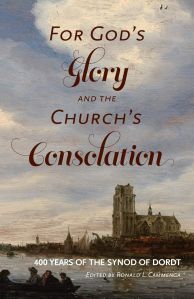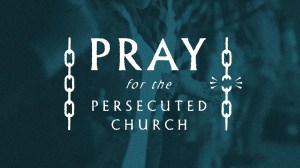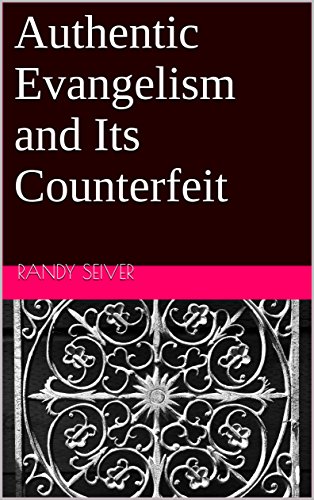For God’s Glory and the Church’s Consolation
A book review by Stuart Brogden
The subtitle of this book, 400 years of the Synod of Dordt, reveals the content thereof – the book is a collection of messages given in 2019 at a conference celebrating the Canons of Dordt, sponsored by the Protestant Reformed Theological Seminary. The seminary and the conference and the book reflect the Dutch Reformed view, which is in clear view throughout. While the truth of what is called Calvinism (God’s sovereignty in the salvation of sinners) is defined and defended, the traditional tenants of Reformed theology are presented as givens, without the pretense of providing biblical support. In the Editor’s Preface we read that “the Synod of Dordt was much more than the Canons of Dordt and the Arminian heresy. It dealt with the matter of a proper view and observance of the New Testament Sabbath, establishing principles that serve the church today.” (page viii) In the first chapter, Douglas J. Kuiper tells us “the delegates (to the synod) declared that they had reviewed the Belgic Confession and found nothing in it that conflicted with Scripture. They declared the same of the Heidelberg Catechism” shortly thereafter (page 7). These two documents have much within them to be commended, but they teach something not found in the words of Scripture: infant baptism, so-called, and they prop up the misguided notion that the Mosaic Law determines order in the New Covenant.
Kuiper goes on to say, “Reformed churches today must recognize the boundaries that the Reformed churches have previously set, and that Dordt declared to be fixed and unbending. They must love these doctrines and the confessions that contain them and be faithful to them.” (page 8) This view enshrines imperfect documents written by sinful men more than 400 years ago the magisterium for Kuiper and his fellows.
This is not to deny that the Canons of Dordt and the other referenced documents contain much rich truth that all who name Christ can embrace, such as “To go wrong in regard to these five doctrines (the substance of Dordt) will inevitably lead to error regarding many other doctrines as well.” (page 9) The current leadership of the Southern Baptist Convention, many of whom have long waged war against the Doctrines of Grace, serve as a current and graphic example of what Kuiper warned about.
In chapter 2, Angus Stewart reminds us that “main achievement of the synod … is the Canons of Dordt, which set forth the truth of the absolute sovereignty of God in salvation over against the heresies of Arminianism.” (page 23) And then we read, “Thus the five points of Calvinism, based on the Canons of Dordt, summarize the truth of God’s word, which is in accordance with the genius of John Calvin’s biblical theology.” (pages 26-27) At best this is a poorly phrased sentence; at worse it posits the Bible as subordinate to John Calvin’s theology (look up “in accordance with”). I would not have brought this up if this book were not full of deference to the Canons and other documents. No document written by man is ever worthy of such submission, but must be tested in light of Scripture at all points.
As a study on the Canons of Dordt, one would expect some examination of the theology of those who protested against the doctrines of grace. Brian Huizinga tells us, “The Arminians hated nothing more than sovereign predestination. … However, they said they believed in election, they used the term election, and they preached sermons on the doctrine of election, even as they used the terms grace and faith but gave to them different meanings.” (chapter 3, page 58) “The Arminians were so careful to sound Reformed and insisted that they believed the truth but only had different ways of expressing the truth.” (page 59) Note this last statement, see how it (claim to believe the truth but have different ways of expressing it) applies to so many who depart from the biblical truth in so many ways – including papists and Mormons.
Chapter 4 may be my favorite; Mark Shand presents a well-ordered presentation what the gospel is, combined with an equally well-ordered refutation of another error of the Arminians, one that has and still does afflict many within the wider circle of reformed/Calvinistic saints; that of the well-meant offer, so called. Shand points out the Arminians protested that, “if the atonement was not universal, there could be no general proclamation of the gospel. To call all men to repentance and faith when not all were encompassed by the atoning work of Jesus Christ was, said the Remonstrants, to render the call of the gospel insincere and hypocritical.” He answers this by rightly declaring, “The gospel at its heart is not an offer in the sense of an invitation or entreaty. It is the proclamation of a command, coupled with a promise.” (page 86) “The promise is not for all; it is only for those who believe on Jesus Christ.” (page 87) Many paedobaptists contend that the “promise” is for believers and their children, based on a faulty reading of Acts 2:39. In this passage, Peter spoke to unbelieving Jews – “men of Judah, men of Israel, all who dwell in Jerusalem.” These Jews asked Peter and the others, “Brothers (fellow Jews) what shall we do?” And Peter said to them, “Repent and be baptized every one of you in the name of Jesus Christ for the forgiveness of your sins, and you will receive the gift of the Holy Spirit. For the promise is for you and for your children and for all who are far off, everyone whom the Lord our God calls to himself.” And with many other words he bore witness and continued to exhort them, saying, “Save yourselves from this crooked generation.” So those who received his word were baptized, and there were added that day about three thousand souls. (Acts 2:38-41) The command – repent and be baptized for the forgiveness of your sins; and the promise is for you unbelieving Jews and your children and those Gentiles who are far off – everyone whom the Lord our God calls to Himself. This passage has nothing to support “covenant children;” as Shand rightly observed – the promise is only for those believe on Jesus!
Douglas J. Kuiper returns in chapter 5 to discuss the view of covenant theology found in the Canons of Dordt. He asserts that these topics which are other than the answer to the 5 points of the Arminians are not secondary, but serve to support the doctrines of grace (page 99). Kuiper presents the mono-covenant so common in Reformed theology (“Inherent in the Canons’ use of the familiar Old Testament and New Testament is the unity of the covenant: it is one covenant” page 105). He asserts that the death of Jesus fulfilled “the Old Testament ceremonial laws” (page 102); while Scripture never says this (He fulfilled “the law”) nor splits up the Mosaic Law into Aquinas’ tripartite view. He wrote, “the covenant to which the Canons refer is the covenant of grace that God has established with elect sinners, with Adam after the fall, and with everyone who is included in the see of the woman (Gen 3:15)” This makes it appear that Kuiper thinks everyone in history is in the “covenant of grace” – making one wonder why such a covenant is needed, if everyone gets in. Later, Kuiper rightly sees the promise of salvation not given to “all the children that are born under the historical dispensation of the covenant, that is, not upon all that are baptized, but only upon the spiritual seed” (page 125). It appears our speaker was a bit sloppy in describing this extra-biblical covenant; one would think sticking with those covenants mentioned in Scripture would reduce this ambiguity.
Here is the danger of ignoring the biblical data on the Old and New Covenants, resting in and trusting in this ephemeral “covenant of grace” – “Because God continues his covenant with godly believers in the line of generations, “godly parents have no reason to doubt of the election and salvation of their children whom it pleaseth God to call out of this life in their infancy.”” (ending with a quote from Confessions and Church Order, page 106) The Old Covenant was established along line of human generations but those people were not required to believe on the promised seed. The New Covenant is, as Kuiper admits on page 125, made only with spiritual children, those who believe. The Bible explicitly teaches not to trust in human generations: And do not presume to say to yourselves, ‘We have Abraham as our father,’ for I tell you, God is able from these stones to raise up children for Abraham. (Matthew 3:9) Jesus came to bring division to earthly families as those who not His sheep would rise up against those who are (Matthew 10:34-37). This mythical mono-covenant conflates the old and new covenants and gives false cover to this specious notion of “covenant children.”
Note the confusion about the New Covenant in this system. Dordt declares, “being in the covenant, we do not doubt the election of infants of believing parents. This is not because the covenant determines who are elect, but because election determines who are in the covenant.” (page 109) He is emphatic that only elect (I would say only the redeemed) are in the New Covenant, yet he is just as emphatic that offspring of believers are in the covenant – while admitting not all of them are elect! Rather than be presumptuous that our children are elect, we ought to be diligent to teach our children the ways of God, preach the gospel to them, and pray for and with them in hopes that God would save them. In this chapter, Kuiper brings out some of the errors the Arminians presented regarding the New Covenant; our Dutch Reformed brothers have some things to work out themselves.
In chapter 6, William A. Langerak spoke on the polity contained in the Canons of Dordt, further revealing that the Dutch Reformed rest on their traditions and documents as much or more than they rest on Scripture for some doctrines. He declares, “the polity of Dordt is not just good; it is magnificent.” (page 128) He spends several pages summarizing the historical development of Dordt’s polity, saying “the Church Order of Dordt (1619) is basically that of The Hague (1586), which in turn is derived from church orders revised and adopted by two national synods …” (page 134-135) This run-on sentence fills up a paragraph of citations of the foundation of their polity but contains no references to Scripture, only to men and conventions of men. Langerak established their view of tight control over the local assembly of saints by ecclesiastical levels the Bible knows nothing about (pages 138-156), including dictating what songs may be sung, what holy-days are to be observed, what offices (they see three: ministers, elders, deacons; the Bible reveals two: elders and deacons) are to be the council of the church, how frequently the Lord’s Supper should be observed; all the while claiming “Article 30 of the Belgic Confession also establishes the principle of the autonomy of the local congregation as a self-governing church in its own right, apart from any federation with other Reformed churches in a denomination.” (page 146) These controls over the local congregation by the ecclesiastical hierarchy is needed, Langerak says, because they want to avoid “the lawlessness of the Anabaptists” (page 150). Those radicals had the notion that no mortal had authority aver the local assembly of saints; that each congregation answered to Christ. These men were obviously “lawless” – they did not submit to the law of man. One excellent practice embraced by our Dutch Reformed brothers is equality among the men holding each office (page 148); far too many of my fellow Baptists have drifted into serious error by having only one elder or singling out one elder as higher ranking than the others. This should not be! In all the discussion about church polity, not one word about the condition of membership – regeneration. Herein is a danger far beyond any “lawlessness” of refusing ecclesiastical hierarchy.
The last two chapters are very good, the 7th full of Scripture defending election and the flip-side thereof, reprobation, written by Ronald L. Cammenga. Many Calvinists deny this doctrine, but if you hold to God’s sovereign election of a limited number of people He chose, then He has also chosen those who will not be saved. Those He has rejected are the subjects of reprobation. This doctrine is seen in YHWH’s choosing of Israel (a nation He built up) and rejecting all other nations. Proverbs 16:4 and Romans 9:11-13; 21-22 all speak to His power and authority to do with His creatures as He wills. He accepted Jacob and rejected Esau; election and reprobation. God sends a strong delusion to some of those He has not chosen unto salvation to insure they will not come to a knowledge of the truth (2 Thess 2:11-12). The Bible is full of the good news that countless numbers from every nation, tongue, and tribe are His sheep. The only way to accept His choosing some is to recognize His rejection of others. The Bible tells us none seek God, so it’s not as though He rejects those who search for Him; He choose who He would save and the rest of mankind was “chosen” by being rejected. The gospel message is the good news of salvation by grace; there is no need to tell people they might be reprobates (a biblical word describing the subjects of reprobation!) and there is no biblical warrant to do so. But we also have no reason to claim God does not reject anyone, but merely allows them to go their own way. Man is, by nature, an enemy of God and will go to hell unless He intervenes; but the Bible also tells us God gives the reprobates a shove along their way – He gives them over to their sin (Romans 1:24). Reprobation is the bad news from Romans 8:1 implicit for all who are not in Christ Jesus – they are condemned.
In chapter 8, Barret Gritters shows us from Scripture how and why saints can enjoy assurance of the salvation. “Election is not merely God’s choice of certain persons to be saved but his choice to place them in the security of, and into organic connection with, the body of his Son Jesus Christ.” (page 206) Barret also rightly sees our nature – “I am “by nature neither better not more deserving than others.”” (page 207, quoting from Dordt) “The same God who elects, redeems, justifies, and preserves also assures his people of this. By his Spirit and word, God convinces me that of his love for me.” (page 212) Anyone struggling with assurance of salvation would be encouraged to read this chapter – it rests on bedrock: the nature and character of our Redeemer.
If you are like me, you’ve been familiar with the 5 points (commonly called Calvinism) which were drawn up to answer the 5 points put forth by the Arminians but maybe not as familiar with the other doctrines established or restated in the Canons. As a Baptist, I am informed by historic documents of the faith but I am not bound by them if I cannot find their doctrines in Scripture. So it is with much of the other things taught by Dordt. This is an interesting book, providing an in-depth look at what our Dutch Reformed brothers and sisters hold to.
Note: I was asked by the publisher, Reformed Free Publishing, if I would be interested in reviewing this book, which was generously provided by them to me.





 to Moses. Everything I have found shows me otherwise.
to Moses. Everything I have found shows me otherwise.




 New Covenant.
New Covenant. Is that how the Bible uses the word “lost?” This word is found 14 times in the HCSB New Testament and three of them have nothing to do with being separated from God: Mark 2:22 is talking about mixing old covenant theology with new covenant theology, using wineskins as metaphors. Luke 22:18 shows the care of God in preserving His saints during trials. 1 Corinthian 3:15 reveals that some work done in this life by the saints will be burned up (lost) in the judgment.
Is that how the Bible uses the word “lost?” This word is found 14 times in the HCSB New Testament and three of them have nothing to do with being separated from God: Mark 2:22 is talking about mixing old covenant theology with new covenant theology, using wineskins as metaphors. Luke 22:18 shows the care of God in preserving His saints during trials. 1 Corinthian 3:15 reveals that some work done in this life by the saints will be burned up (lost) in the judgment. crowds often followed Him – including religious leaders who saw Him as a threat, rather than the possible Messiah.
crowds often followed Him – including religious leaders who saw Him as a threat, rather than the possible Messiah.
 I highly recommend you visit her blog and
I highly recommend you visit her blog and 



 Pastor Butler also pulls no punches when he calls out Redding, California’s Bethel Church and longtime celebrity leader/teacher/pastor John Piper. This kind of boldness in warning the sheep about specific hirelings is desperately needed in the church today.
Pastor Butler also pulls no punches when he calls out Redding, California’s Bethel Church and longtime celebrity leader/teacher/pastor John Piper. This kind of boldness in warning the sheep about specific hirelings is desperately needed in the church today. reconciliation of sinners with holy God is the most vital part of life, then the role given us by God in His grand redemptive plan must be worthy of our close attention. It is call to properly understanding and proclaiming that gospel our author strives to impress upon the reader in this fine book.
reconciliation of sinners with holy God is the most vital part of life, then the role given us by God in His grand redemptive plan must be worthy of our close attention. It is call to properly understanding and proclaiming that gospel our author strives to impress upon the reader in this fine book.